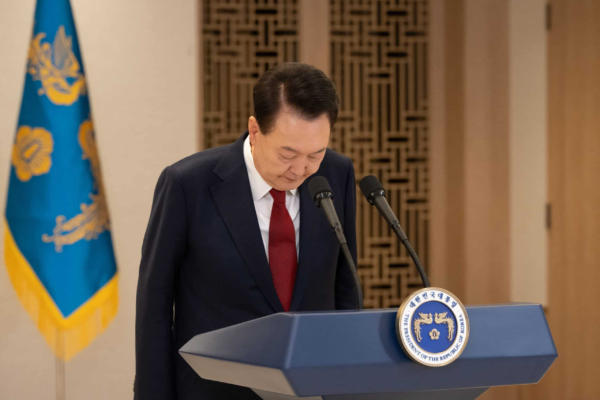UK court dismisses claim against intel agency by alleged Chinese ‘spy’
A London-based lawyer accused of secretly working with China’s propaganda arm has lost a legal appeal against the U.K.’s domestic intelligence service. Christine Lee said an “interference alert” from MI5 issued in January 2022 had violated her rights, leading to lost business, a barrage of racist emails and even death threats. Her son, David Wilkes, was part of the appeal and said that the alert also negatively affected him. But the Investigatory Powers Tribunal, an independent U.K. judiciary body, unanimously dismissed their claim, calling the alert issued to the British Parliament “a proportionate response to the threat posed” by Lee. The alert accused Lee of attempting to interfere with U.K. politics on behalf of the United Front Work Department, which Western governments say operates covert intelligence and influence campaigns abroad. The alert was the first ever issued related to China. However, officials did not deem her to have committed any prosecutable offense. Lee was born in Hong Kong but emigrated with her family to Belfast when she was 12. The advisory notice on lawyer Christine Lee from MI5, the U.K.’s domestic intelligence and security agency.(MI5) At the time the alert was issued, she was working as an attorney largely on behalf of members of the British Chinese community. Lee’s work on Anglo-Chinese relations garnered an award in 2019 from then-Prime Minister Theresa May. Wilkes, her son, was a diary manager for Barry Gardiner, a member of Parliament to whom Lee had donated more than 500,000 GBP over five years. The issuance of the alert prompted a barrage of news reports alleging that Lee was a Chinese agent, which she claimed caused her emotional distress. The judgment issued this week notes that Lee received rape and death threats following the issuance of the alert. Lee said the alert led to “irreparable reputational harm” and ended her work on behalf of asylum seekers. Wilkes alleged that he was told by his employer to resign or be dismissed the day the alert was issued. Gardiner denied the claim, and the two later reached a settlement. But the alert forced him to change careers and cost him friendships, Wilkes said. However, the tribunal ruled today that MI5’s warning about Lee’s alleged threat was justified, and that the agency was not responsible for abuses she faced from the media and public. The court was established in 2000 to weigh cases in which public entities, in particular British intelligence agencies, are alleged to have violated individual rights. The decision to dismiss Lee and Wilkes’ claims comes as fears over Chinese efforts to influence politics have gripped Britain. RELATED STORIES EXCLUSIVE: United Front-linked group lauded Yang Tengbo’s links to David Cameron EXCLUSIVE: Alleged Chinese spy tied to Prince Andrew is businessman Yang Tengbo EXPLAINED: What is China’s United Front and how does it operate? On Monday, British officials named Yang Tengbo as the alleged Chinese spy who had been barred from entering the United Kingdom due to national security risks in 2021, confirming an RFA Dec. 13 report. Yang had served as a business adviser to Prince Andrew and, as also was reported by RFA, had connections with former British Prime Ministers David Cameron and Teresa May through his consultancy, the Hampton Group International. British authorities allege Yang plotted to secretly advance Beijing’s interest in the U.K. through his ties to high-profile figures. China’s Foreign Ministry said the UK’s allegation of YangTengbo engaging in espionage was ‘ridiculous’ and called on both sides to work towards mutual benefit. Chinese officials have denied the allegations, saying Yang’s work was part of normal exchanges to promote international business. Yang himself had asked British authorities to release his name publicly. “The widespread description of me as a ‘spy’ is entirely untrue,” he said in a statement. Chinese Foreign Ministry spokesperson Lin Jian on Tuesday called the spying allegations against Yang “ridiculous.” Edited by Abby Seiff and Boer Deng We are : Investigative Journalism Reportika Investigative Reports Daily Reports Interviews Surveys Reportika


